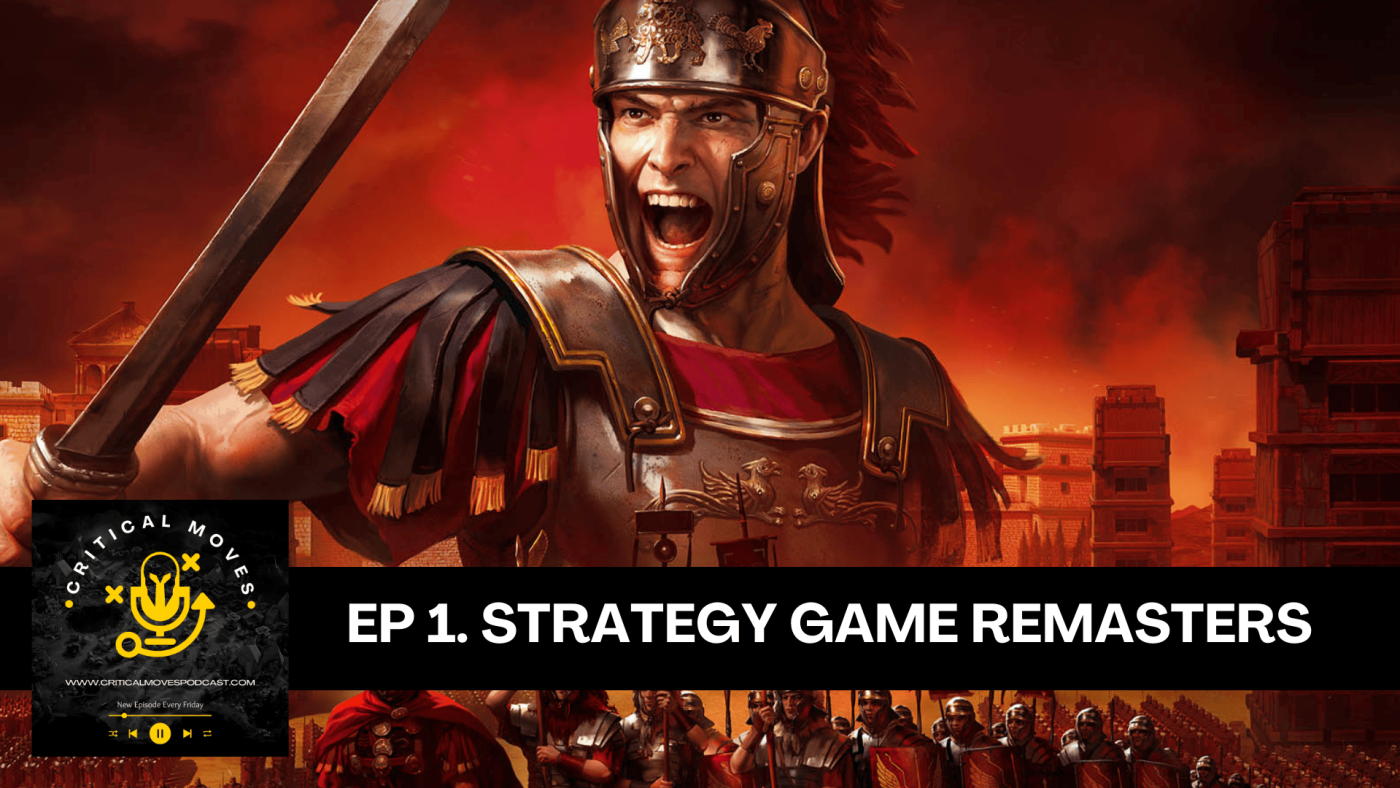Critical Moves kicks off with a bang in its first episode, diving straight into the divisive topic of strategy game remasters. From nostalgia-driven upgrades to full-blown remakes, the team debates whether these projects honour their legacies or exploit their fan bases. Featuring hosts Nuno, Al, Tim, and Joe, the conversation covers a lot of ground: the differences between remasters and remakes, standout titles, disappointments, and what they’d personally like to see revisited.
Here’s what the episode covered:
- The difference between remasters and remakes.
- Examples of excellent remasters and notorious failures.
- How modern expectations around graphics, UI, and controls shape the success of these projects.
- The role remasters play in the strategy gaming market—are they reinvigorating the genre or holding it back?
- Dream remasters from each host’s perspective.
Let’s dig into the discussion.
Nuno opens the episode by framing the debate around remasters: what makes them appealing and why they’re so polarizing. Al doesn’t pull punches, calling most remasters “lazy cash grabs.” It’s a point that resonates with Tim, who points out how some projects lean on nostalgia rather than offering real improvements. Joe counters with his love for Command & Conquer Remastered, a project that captures the spirit of the original while offering a polished experience.
Much of the conversation centers on expectations. What should a remaster deliver? Improved graphics, better UI, and modernized controls come up repeatedly, but there’s tension between maintaining the original game’s essence and catering to new audiences. Age of Empires II: Definitive Edition gets high praise for respecting its community while introducing meaningful upgrades. Meanwhile, Warcraft III: Reforged and Rome: Total War Remastered are cited as examples of remasters that failed to meet expectations.
The question of innovation versus nostalgia sparks the most passionate exchanges. Al argues that remasters stifle creativity, allowing studios to avoid risks and innovation. Nuno pushes back, suggesting that remasters have proven the enduring demand for RTS games, paving the way for titles like Tempest Rising and DORF. Tim reflects on how the strategy genre, once thought to be waning, has seen a resurgence partially thanks to renewed interest sparked by remasters.
Each host shares their dream remaster. Joe makes a case for Battle for Middle-earth, emphasizing its cinematic scope and iconic battles. Al champions Dawn of War, highlighting the potential for using existing engines to reimagine the Warhammer classic. Tim’s pick is Total Annihilation: Kingdoms, which he feels was underappreciated despite its strong campaign and compelling story. Nuno’s choice, World War II: Frontline Command, is a more obscure title, but one he passionately defends as an innovative blend of RTS and tactical gameplay that deserves a second chance.
The episode wraps up with reflections on what remasters mean for strategy gaming. Are they a necessary part of preserving gaming history, or do they risk overshadowing the need for fresh ideas? It’s a question the hosts leave open for the audience to consider, making it clear this is just the beginning of many debates to come.
You can listen to the episode on Spotify, Amazon Music, Apple Podcasts, or YouTube.
Next week, the podcast explores the RTS Renaissance. Don’t miss it.


